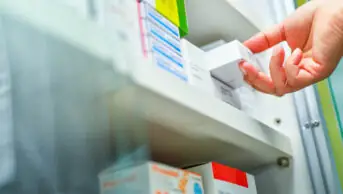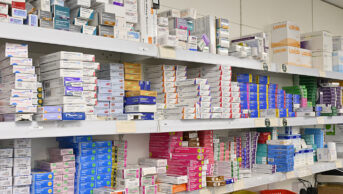
Shutterstock.com
A government-funded freight service designed to urgently transport medicines and medical goods that are at risk of shortage has been used 22 times since it launched, The Pharmaceutical Journal has learned.
In response to a freedom of information (FOI) request, the Department of Health and Social Care (DHSC) said the International Express Freight Service, which was announced in November 2021, had been used by four suppliers as of 29 June 2022.
In a statement on 11 July 2022, the DHSC told The Pharmaceutical Journal that more than 600 suppliers are registered with the freight service so that they can access it whenever necessary, adding that the service can transport cold chain, radioactive and dangerous goods.
The freight service was set up to deliver small parcels within 24 to 48 hours and pallets or shipments within 2 to 4 working days to the UK, when a supplier’s own logistical arrangements are disrupted and a risk of shortages arises.
The DHSC paid global transport and logistics company Kuehne + Nagel International just over £1.2m to provide the freight service from 1 November 2021 to 31 October 2022.
In a contract notice published on 3 November 2021, the DHSC said the service could use “any mode of transport subject to these being compatible with the transit timescale requirements, conditions of carriage, and the effective mitigation of foreseeable disruption to services”.
It added that the freight service would provide “continuity of flow to and from the UK (mainly from Europe but with capability to extend its reach globally); flexibility and responsiveness; value for money”.
According to the government’s FOI response, the freight service “has responded to 22 requests for emergency logistical support from four suppliers of medical products”.
“All 22 requests are related to delivery of medical devices or clinical consumables,” it said, adding that these included 1 delivery of reagent, 3 deliveries of blood bags, 11 deliveries of infusion pumps, 3 deliveries of epidural minipack systems, 3 deliveries of infusion pump accessories, and 1 delivery of winged needles.
In the response, the DHSC declined to disclose details of the four suppliers that used the service, saying that doing so would “prejudice commercial interests”.
Ross Maclagan, distribution and supply chain policy manager at the Association of the British Pharmaceutical Industry, said that manufacturing companies “put in place a wide range of measures to prepare for the UK’s exit from the EU and keeping medicines flowing throughout the pandemic, including rerouting supply chains and increasing stocks of medicines”.
“The express freight service was part of these wider plans and provided an important backup. The fact that this service has not been heavily used is a reflection of the work done by government and industry to maintain medicine supply,” he said.
A spokesperson for the DHSC said: “Working alongside the NHS and industry, we prioritise continuity of supply during times of UK-wide supply chain disruption to help ensure that medicines and medical products reach patients.
“Due to the nature of the EFS as an emergency contingency measure, there are no expectations on the number of times it may be used.”
The spokesperson added that it was not liable for any shipment costs related to freight service, with transport and delivery charges agreed directly between the shipper and the service provider.
In August 2019, the government first tendered a two-year contract worth £25m for an ‘express freight service’ to transport urgent medicines after Brexit, which had been expected to deliver small “time sensitive shipments” within 24 hours or larger pallets of medicines within 4 days.


